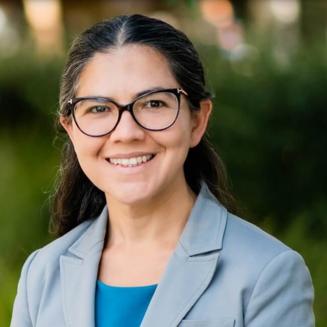Massachusetts Institute of Technology,Cambridge, MA, B.S. - 2003 Brain and Cognitive Science
Columbia University, Mailman School of Public Health,New York, NY, M.P.H. - 2007 Public Health, Adolescent Health
Cornell University,New York, NY, M.D. - 2008 Medicine
Mount Sinai Hospital,New York, NY, Residency and Chief Residency - 2012 Internal Medicine and Pediatrics
University of California San Francisco, Fellow - 2016 Health Policy
University of California San Francisco, Fellow - 2016 Adolescent and Young Adult Medicine
University of California,San Francisco, CA 2018 Diversity, Equity, and Inclusion Champion Training
1. Novel therapeutics for patients with eating disorders: Dr. Raymond-Flesch is the Principal Investigator for the Study of Psilocybin for Anorexia Nervosa in Young Adults (SPANYA). Psilocybin has shown remarkable potential for the treatment of other severe and enduring mental illnesses, and its safety profile has been remarkably good across studies. Psilocybin’s mechanisms of action are through serotonergic and anatomical pathways that are implicated in anorexia, making it a promising approach. SPANYA is testing the efficacy of psilocybin therapy in patients with ongoing brain development, ages 18 to 25 years old.
2. Improving adolescent and young adult access to abortion services: Dr. Raymond-Flesch and her team have developed, tested, and disseminated a curriculum to train pediatricians in the provision of medication abortion in primary care settings. She is also the senior investigator on a national mixed-methods study to better understand the post-Dobbs era abortion referral practices of providers who serve adolescents and young adults across the country. The goal of this project is to better characterize the systems-level barriers to abortion referral and better understand the strategies that providers are using to promote access to comprehensive health care.
3. Investigating the mental health, reproductive health, and wellbeing outcomes for Latine youth in immigrant communities: In partnership with colleagues from RTI, UC Berkeley, and the Monterey County Health Department, Dr. Raymond-Flesch is examining the relationship between gang violence, unintended teen pregnancies, and mental health in a cohort of 599 early adolescents in Salinas, California - a small, predominantly Latino community in California’s rural central coast. To date, this work has highlighted the critical role that family plays in positive youth development, reducing depressive symptoms, buffering traumatic experiences, and increasing reproductive health knowledge. The second phase of this project, "A Crecer: Young Adult Health Study," is following the same participants into young adulthood to further assess the factors that support rural youth to thrive.


